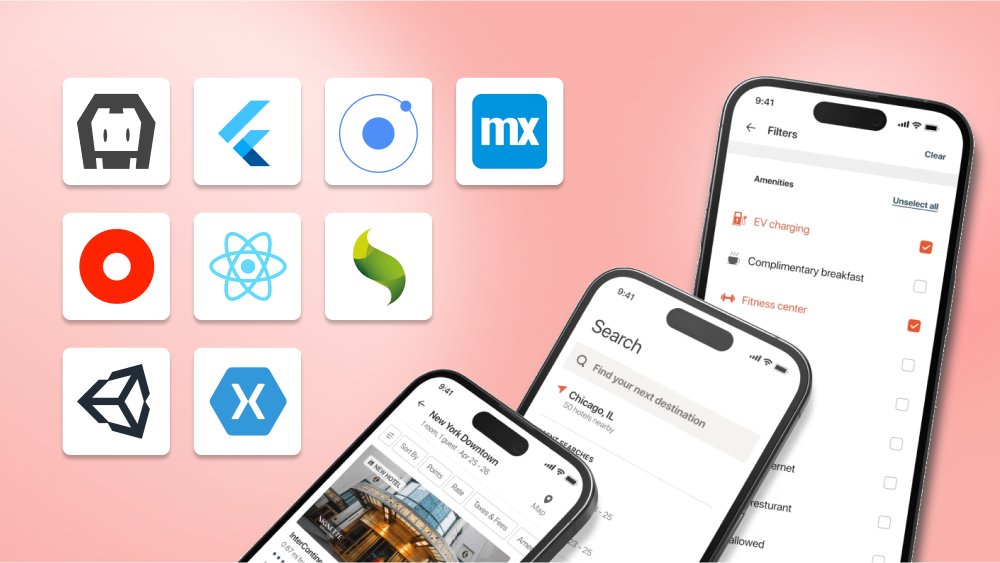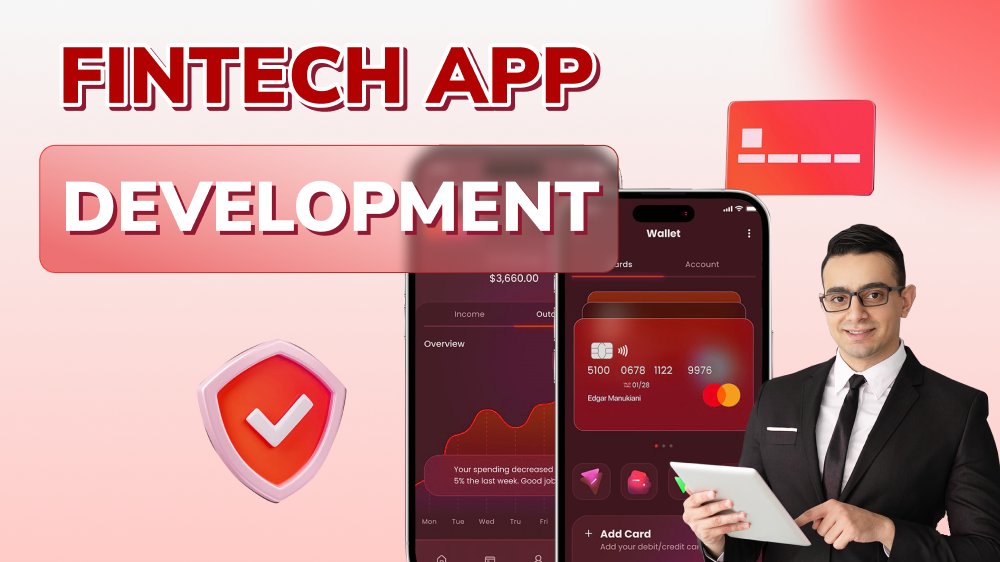How to Develop an App Like Snapchat: Tips and Tricks

Content Map
More chaptersThe Snapchat app platform took the world by storm with its innovative ephemeral messaging format that encouraged creative self-expression over polished profiles. In just over a decade, the platform has accumulated over a million daily active users, particularly among younger demographics.
Its streaks, filters, and geofilters ignited a content craze that shaped social norms and accelerated the rise of short videos. Now, every platform clones its signature Stories format, proving Snapchat’s visionary impact.
For developers, recreating Snapchat’s magical formula offers a goldmine of opportunity. By understanding what fueled its rise, you can craft the next viral app sensation. This guide reveals the keys to its kingdom through strategic design lessons and development tactics. Armed with these battle-tested strategies, you’ll be ready to launch your very own Snapchat spin-off. However, before diving in, let’s consider whether it’s worth the time and effort.
Building an App Like Snapchat - Is It a Sound Choice?
With the emergence of mobile app development services, live video platforms have seen a meteoric rise in popularity, becoming a staple in entertainment and professional settings alike. In the third quarter of 2022, leading platforms in the live-streaming sector amassed around 7.2 billion hours of content watched. This staggering figure underscores the global embrace of live video content, signaling a shift in consumer preferences towards real-time, authentic, and interactive experiences.
Snapchat, in particular, has played a pivotal role in this live video revolution. Its innovative features, such as ‘stories’ and video messages, have not only captivated millennials and Generation Z but also set a benchmark for social media innovation.
The statistics paint a clear picture: social media engagement is at an all-time high. Snapchat alone boasts a daily user base of over 397 million people, with users opening the app around 30 times daily. This level of engagement is a testament to the platform’s ability to keep users hooked with its blend of visual communication and fleeting content.
To sum up, the Snapchat clone app development process aligns with current trends and user engagement statistics. It’s not just a sound choice; it’s a strategic move to capture the zeitgeist of our digital era.
The Core Features of Your Own App, Like Snapchat
In the bustling market of social media platforms, creating a standout product means integrating features that resonate with the target audience. Here’s how your development team can infuse the essence of Snapchat into your app:
Photo and Video Sharing
Temporary Content: The ephemeral nature of content on platforms like Snapchat has changed the way we think about digital permanence. By enabling users to share videos and photos that disappear after a short period, you encourage a more casual and intimate form of communication. This feature can be enhanced with the ability to set custom timers, ensuring users have control over their content’s lifespan.
Creative Toolkit: Filters, stickers, and augmented reality (AR) effects are not just fun; they’re a form of self-expression. Offering a wide range of creative tools enables Snapchat users to personalize their content. Advanced AR capabilities can allow users to interact with their environment in innovative ways, potentially opening up new avenues for brand partnerships and advertising.
Stories and Discover
Ephemeral Storytelling: Stories allow users to create a narrative from their day-to-day activities that vanish after 24 hours. This feature can be enriched by providing various layouts, background music options, and interactive elements like polls or Q&A to increase engagement.
Publisher and Creator Integrations: This section can serve as a platform for creators and publishers to share content with a broader audience. Implementing a revenue-sharing model and providing detailed analytics can attract high-quality content creators, which in turn can keep users engaged and attract new ones.
Snap Map and Location Sharing
Real-Time Location Sharing: The Snap Map feature lets friends or other users share their location in real time, making it easier to meet up or share experiences. Privacy settings are crucial here, allowing users to control who can see their location. Additionally, integrating points of interest or events on the map can guide users to popular or trending locales.
Geofilters and Location-Based Features: Geofilters offer a fun way to share where you are with unique, location-specific overlays. For businesses, this can be a powerful tool for location-based marketing. Implementing user-generated geofilters can further personalize the experience and foster a sense of community.
Chat Functionality
Disappearing Messages: A chat feature that includes disappearing messages after they’ve been viewed mimics the natural flow of a conversation and adds a layer of privacy. Features like screenshot notifications can provide users with a sense of security.
Multimedia Sharing Options: Beyond text, allowing users to share a variety of multimedia content, including GIFs, stickers, voice notes, and short video clips, can make conversations more dynamic and engaging. Integrating a media library with search functionality can enhance the user experience.
The Tech Stack in Snapchat-like App Development

Creating a Snapchat-like app is not just about replicating features with programming languages; it’s about crafting an experience. The technology stack you choose is the foundation of this experience. Here’s a guide to selecting the right tech stack for your Snapchat clone:
Front-end Development
- Mobile Platforms: Opt for native development with Swift for iOS release on the Apple App Store or Kotlin for Android publish on Google Play Store to ensure a smooth user experience.
- User Interface: Use frameworks like React Native or Flutter for a dynamic and responsive design that can handle real-time updates with ease.
Snapchat’s user interface is known for its speed and responsiveness, which is achieved through the use of modern front-end technologies. They have likely used frameworks like React for dynamic user interfaces and jQuery for simpler yet effective HTML document manipulation.
Backend Development
- Server-Side Scripting: Node.js and Ruby on Rails are popular choices for their scalability and support for real-time applications.
- Database Management: Consider MongoDB or Cassandra for handling large volumes of unstructured data with high performance.
For server-side operations, Snapchat might employ languages like Java, which is known for its robustness and scalability. Coupled with servers like NGINX and operating systems like Ubuntu, Snapchat ensures a stable and efficient backend environment.
Cloud Services
- Storage: Cloud storage solutions like Amazon S3 are essential for storing and retrieving media files quickly.
- Computing: Leverage AWS Lambda or Google Cloud Functions for efficient backend operations without managing servers.
Snapchat handles a massive amount of data, including multimedia content and user information. Technologies like Amazon S3 for storage and Google Cloud Platform services ensure that data is stored securely and accessed swiftly.
Augmented Reality (AR) and Filters
- AR SDKs: Integrate ARCore or ARKit to bring interactive and engaging AR features to your app.
- Image Processing: Utilize libraries like OpenCV to implement real-time filters and effects.
One of Snapchat’s standout features is its AR filters. To create these, Snapchat could be using AR development kits like ARCore and ARKit, which allow for the creation of immersive and interactive AR experiences. Libraries such as OpenCV might be used for processing images and applying filters in real time.
Real-Time Communication
- WebSockets: Implement WebSockets for real-time data transfer, crucial for chat and video streaming features.
- Push Notifications: Use services like Firebase Cloud Messaging to keep users engaged with timely notifications.
Snapchat’s real-time communication is likely powered by WebSockets, which enables instant data transfer, essential for features like chat and video streaming. For sending notifications, services like Firebase Cloud Messaging keep users informed and engaged.
Security
- Authentication: Secure user data with robust authentication mechanisms using OAuth or JWT.
- Data Encryption: Ensure data privacy with encryption standards like AES and SSL/TLS for in-transit and at-rest data.
To protect user data, Snapchat employs authentication protocols like OAuth and JWT to verify user identities securely. Data encryption standards such as AES and SSL/TLS are probably in place to protect data during transfer and storage.
Analytics and Monitoring
- User Analytics: Track user engagement and app performance with tools like Google Analytics and Mixpanel.
- Performance Monitoring: Use New Relic or Datadog to monitor server health and optimize app performance.
Tools like Google Analytics provide valuable insights for tracking user engagement and app performance. Performance monitoring tools such as Datadog or New Relic help Snapchat maintain optimal app performance by monitoring server health.
Choosing the right tech stack is a strategic decision that will affect not only the development process but also the future scalability and maintainability of your app. Invest time in selecting technologies that align with your app’s goals and user expectations to build a Snapchat-like app that stands out in the crowded social media space.
The Cost of Snapchat Clone App Development
Venturing into the realm of social media app development, particularly one akin to Snapchat, is an ambitious endeavor. The cost of bringing such an app to life can vary widely, influenced by a multitude of factors. Let’s break down the financial landscape of Snapchat app development.
Understanding the Financial Commitment
The development of an app like Snapchat encompasses a broad spectrum of costs, typically ranging from $40,000 to $300,000. This variance is attributed to several key factors:
- App Complexity: The more intricate the app’s features and functionalities, the higher the development cost.
- Feature-List: Each additional feature, from AR filters to live streaming capabilities, adds to the overall expense.
- UI/UX Design: A user-friendly and visually appealing interface is crucial for user retention but comes at a cost.
- Development Company Location: Labor costs can differ drastically depending on the geographical location of your development team.
Breaking Down the Costs
To provide a more detailed perspective, here’s what you can expect:
- Basic App Version: For a stripped-down version with essential features, expenses can start at around $20,000.
- Intermediate App: Incorporating more advanced features and a polished design can push costs to between $45,000 and $55,000.
- Full-Fledged App: A comprehensive app with all the bells and whistles of Snapchat can escalate costs upwards of $100,000.
While the initial investment may seem steep, the potential return is considerable. Snapchat itself has proven the viability of such apps, with millions of daily active users and significant revenue streams from various monetization strategies.
Developing a Snapchat-like app is a significant financial undertaking, but with the right concept and execution, it can be a lucrative venture in the ever-growing social media space. Are you ready to invest in the next big social phenomenon?
Bringing Your Vision to Life with Orient Software
In the journey to create a custom app that captures the essence of Snapchat, the path you choose is as crucial as the vision you hold. Orient Software stands as a beacon of reliability in the vast sea of software development. With a proven track record of crafting dynamic digital experiences, we are the partner you need to turn your innovative ideas into reality.
The road to developing a Snapchat-like app is filled with challenges and opportunities. With Orient Software as your ally, you can navigate this path with confidence. Let’s embark on this creative voyage together and build an app that stands out in the digital landscape.
Embark on the adventure of building your Snapchat-like app with Orient Software, where your vision becomes our mission. Reach out now, and let’s make your app the next big thing in social media!







